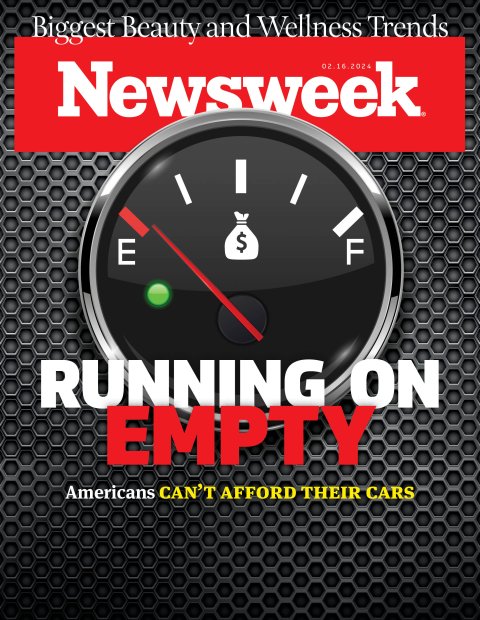For decades, car ownership has been a trademark of the American lifestyle, with vehicles becoming symbols of freedom, independence and even rebellion, as well as a necessity.

Kate H., 37, told Newsweek that she needs a car "to be alive." But after hers was totaled in late December, she cannot afford to buy a new one because it would cost her too much and she has not been able to secure good financing.
"Having a car that is 10 percent of my income, including gas, insurance, car payments, etc. means I probably need to budget around $400 or less per month," she said. Kate is on Social Security disability due to an immune system disorder and other health problems. She cannot use ride-sharing services too often because she needs to avoid pathogens.
Kate isn't alone in finding cars too pricey these days in the aftermath of the COVID lockdown. Both new and used car prices rose to record highs during the pandemic, as the auto industry experienced supply chain disruptions and chip shortages. Since 2020, new car prices have risen by 30 percent, according to data shared with Newsweek by AI car shopping app CoPilot. Within the same time frame, used car prices have jumped by 38 percent.
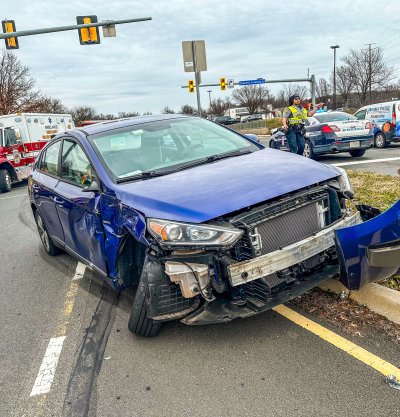

In 2023—a year during which inflation increases slowed down to the point that the Federal Reserve decided to stop hiking rates—new car prices rose by 1 percent to an average of $50,364, while used car prices fell by only 2 percent to an average of $31,030.
But as things stand, cars are still really expensive for many Americans. Just 10 percent of new car listings are currently priced below $30,000, according to CoPilot. Things are not much better in the used car market, where only 28 percent of listings are currently priced below $20,000.
According to an October report by Market Watch, Americans needed an annual income of at least $100,000 to afford a car, at least if they're following standard budgeting advice, which says you shouldn't spend more than 10 percent of your monthly income on car-related expenses. That means that more than 60 percent of American households cannot afford to buy a new car, based on Census data. For individuals, the numbers are even worse, with 82 percent of people below the $100,000 line.
Ann H. is a 62-year-old single woman who works from home and makes approximately $44,000 per year gross. She told Newsweek she feels "defeated" when looking at the price of cars online—new and used.
"I currently own a 2005 Ford Focus that I bought new. It is really starting to show its age, both in appearance and performance. Granted, I don't need to drive too much, but I am always worried it will break down," she told Newsweek.
"I have a credit score of 798, and my credit union is offering a loan at 6.29 percent APR. That is twice my mortgage rate," she said. "Does the industry really think the middle class can afford that? I can't. My fingers are bleeding as I struggle to hang onto the ledge of the lower middle class and not fall to the poverty line."
Shawn Stewart told Newsweek that he and his wife, both teachers, "barely make enough to purchase a used car, much less a new vehicle." This year, he said, the couple had to choose between a new car, a new shower or an air-conditioning unit. "Since when does it take two salaries to buy a new car?" he asked.
Why Have Cars Become So Expensive?
"There's no doubt about it, 2023 was one of the most challenging years to buy a car, especially for more budget-conscious consumers," CoPilot CEO Pat Ryan told Newsweek.
"Prices saw a substantial run-up in the spring, driven by confident consumers at the upper end of the market, and they never fully recovered. Across most brands and segments, car prices have barely moved from the levels at which they started the year. When you also factor in multiple interest rate hikes, there were not many deals to be had for car shoppers."
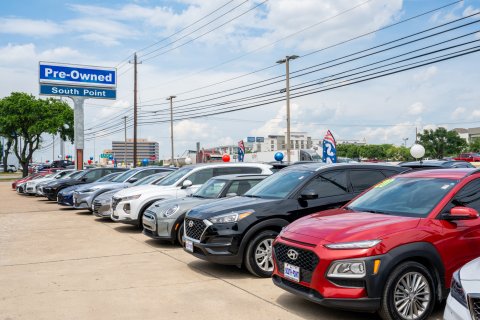
"Simply put, cars have become more expensive," Joseph Yoon, consumer insights analyst at car consumer guide Edmunds—an online resource for cars inventory and information—told Newsweek. "In November 2019, the average transaction price for a new vehicle was $38,500. In November of 2023, that figure jumped to $47,939."
The pandemic's disruption of manufacturing supply chains, as well as outsized consumer demand in 2021, really put a strain on vehicle inventory and drove up prices significantly, said Yoon.
"Dealers practically had customers lined up to buy vehicles that weren't available," he explained. "Supply chain disruptions also forced manufacturers to prioritize more profitable, higher-trim vehicles in their lineups, which meant the inventory available to purchase also carried a higher sticker price."
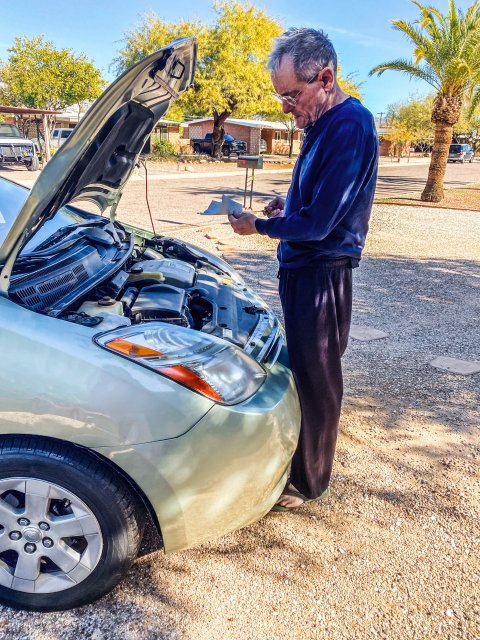
Karl Brauer, executive analyst at iSeeCars, told Newsweek that he expects used car prices to continue falling modestly in 2024.
"The backlog in new and used car demand that grew during the pandemic is slowly moderating, but with over two years of restricted new car production, in 2020 through 2022, it will take at least that long for supply to catch up," he said.
"Macroeconomic factors like inflation and higher interest rates are also reducing vehicle demand, but not enough to drastically drop car prices in the foreseeable future."
Robert Golden is a 70-year-old retiree from Arizona. He drives a 2007 Toyota Prius that had its catalytic converter cut off while the vehicle was parked in his front yard—an incident that significantly increased his insurance.
Golden thinks cars are "simply not affordable" for many Americans, "especially since home prices also are not affordable." He said: "The world is going to heck in a handbasket and people's hopes and dreams are being ground up mercilessly."
Leslie Shepard (a pseudonym) has also had her car—a 2009 Hyundai Elantra—totaled in a recent incident. Despite working two jobs, she doesn't have enough funds to replace the vehicle. She works a hybrid role and is required to be in the office three times a week—though she doesn't know how to do that without a car of her own, as the cost of ride-sharing is often prohibitive, she said.
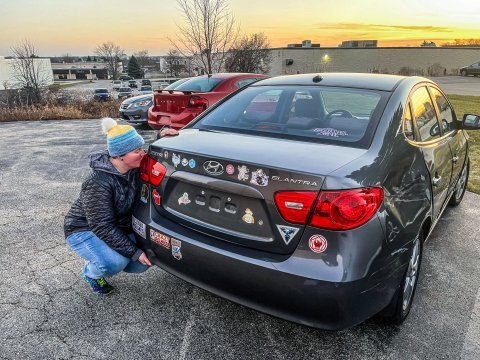
"While my credit is pretty damn good, I simply don't have the cash flow to tackle another substantial monthly payment," she said. She's now worried about whether she'll be able to keep her job without owning a car.
The higher price of newer cars may be one reason why there are more older ones on the road, with the average age of vehicles going up in the past six years. Last year, that figure for passenger cars and light trucks in the country was a record 12.5 years, up by three years compared with 2022, according to a study by S&P Global Mobility.
SUVs Overtake Mid-Range Cars
There are reasons besides pandemic-related disruptions affecting the availability of affordable cars in the U.S.—including that automakers are increasingly focusing on the production of expensive SUVs and trucks while dropping smaller, cheaper vehicles that would cost $20,000 or less.
In 2023, the Ford F-Series truck confirmed its decades-long reign as the top-selling vehicle overall for the 41st consecutive year. Its success could only be challenged by the rise of an electric crossover vehicle—the Tesla Model Y. In 2022, it was the country's best-selling EV.
"Manufacturers cite disappointing sales results as primary reasons for discontinuing smaller, more affordable vehicles from their lineup," Yoon said.
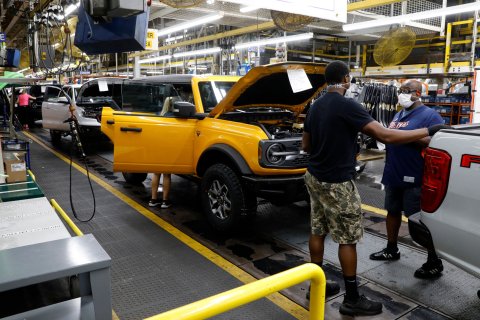
"But car buyers' preferences have also shifted dramatically to larger trucks and SUVs in the past 10 years or so, and even more toward high-tech and comfort amenities in the form of cameras, sensors, radars and large infotainment screens," he said.
Unfortunately, all these features come at a significantly higher price—even if that's often higher than the average yearly wage of millions of Americans.
"Seems to me that people who can't afford high-end SUV or trucks are really left with few good choices for transportation," Golden told Newsweek.
Doug Grosjean and his family, from Detroit, Michigan, hold down costs by owning just one car, he told Newsweek, a 2008 Honda minivan they bought second hand, in cash, with no financing.
"My love affair with the automobile never really happened," he said. "New cars are priced far beyond what I can afford. My family's most recent car purchase was December 30, 2023—a nice 2008 Honda minivan with 125,000 miles for $6,500."

Grosjean works close to his home, which grants him a short commute—and saves him gas. "People who are relying on cars and gasoline get surprised every few years by spikes in oil and gas prices," he said. "While our household is not immune to spikes in oil and gas prices, we can cut our gasoline consumption to 1-2 gallons per week if we need to. Or zero for a few months, if we really had to."
Gas prices peaked to a record average price of $5.016 nationwide in June 2022, according to the American Automobile Association (AAA), triggered by the disruptions caused by the pandemic and the beginning of the Russian invasion of Ukraine. In January, the national average price hovered around the $3 mark, as per the AAA.
The Green Push and Workers' Woes
It's not just SUVs and trucks that have shaken up the American auto market. A big source of change in recent years has been the rise of electric vehicles, which Joe Biden is pushing for. Earlier this month, his administration announced $623 million in grants to help build a charging network across the U.S. after taking credit for increased sales of EVs since taking office in January 2021.
"Under President Biden's leadership, EV sales have more than quadrupled, the number of publicly available charging ports has grown by nearly 70 percent, and more than 4 million EVs are now on the road," a press release from the U.S. Department of Transportation released on January 11 reads.
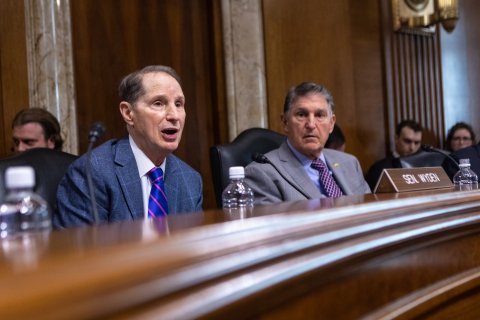
But EVs remain expensive, with the average cost to run one such vehicle in the U.S. priced at $4,856 compared to $4,107 for a gas car, including insurance, taxes, gas, charging and maintenance, according to Self Credit Builder.
The Biden administration is trying to push down the cost of EVs. Under new rules surrounding the Inflation Reduction Act (IRA), approximately two-thirds of Americans will be able to access the program's 30C EV charging tax credit, the White House said on January 19. This tax credit—which took effect on January 1 and tops up at $7,500—would provide up to 30 percent off the cost of the charger to individuals and businesses in low-income communities and nonurban areas, the White House said.
But the credit—which allows car dealers to offer customers immediate rebate at the point of sale—does exclude vehicles with components or critical materials from "foreign entities of concern" from eligibility, as it aims to boost domestic production. These entities include companies that are fully or partially controlled by the Chinese government, Iran, North Korea or Russia.
While it's true that automakers are bringing cheaper EVs to market, they're still starting the offerings with the most expensive models—which might defeat the efforts to make cleaner vehicles more accessible.
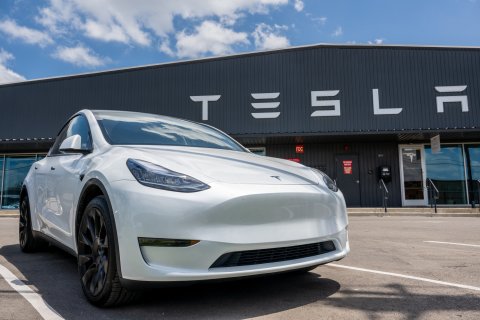
EVs also were at the center of negotiations during the United Auto Workers' (UAW) six-week strike against Ford, General Motors and Stellantis between September and October last year. At several points during the negotiations, the U.S. Big Three claimed they couldn't produce EVs at large scale and remain competitive while paying higher wages.
The new labor contracts for unionized workers which ended the unprecedented strikes will make the production of these vehicles more expensive, the companies said, and it will cost them millions. According to GM, the new contracts will increase the company's costs by $9.3 billion, adding approximately $575 in costs per EV. While some of these costs could be passed on to customers, some could be offset by cutting staff or operations. The deal between GM and the UAW, which includes at least 25 percent hourly pay raises, is set to expire in April 2028.
Ford and Stellantis have also complained about higher labor costs because of the deal—but it remains unclear how this may affect prices.
But Cornell University professor and labor expert Harry Katz previously said he thinks the new contracts were a victory for UAW as well as the three automakers, who have won by gaining certainty in business planning and resolving long-simmering points of conflict with labor.
"I think it's helped, rather than hindered, the growth of electric vehicles," Katz previously told Newsweek.
While Katz offers hope to future would-be EV buyers, it will come too late for car owners like Golden, who are stuck with damaged vehicles they can't afford to repair and are not even thinking about purchasing a new one.
"People's earnings are basically static and price increases across the board for living expenses are simply impossible to accommodate," he said. "There is a lot of misery out there with few happy endings."
